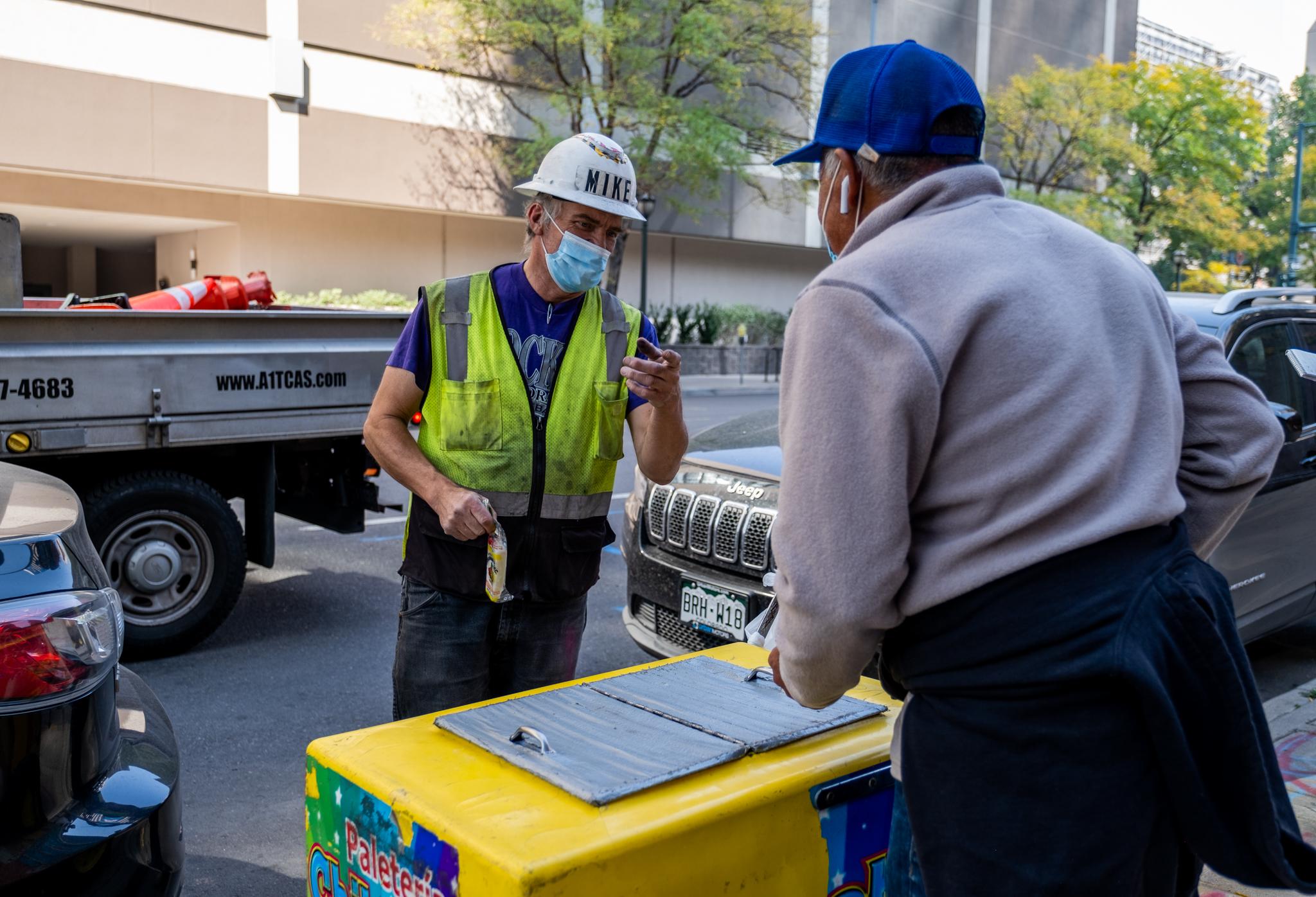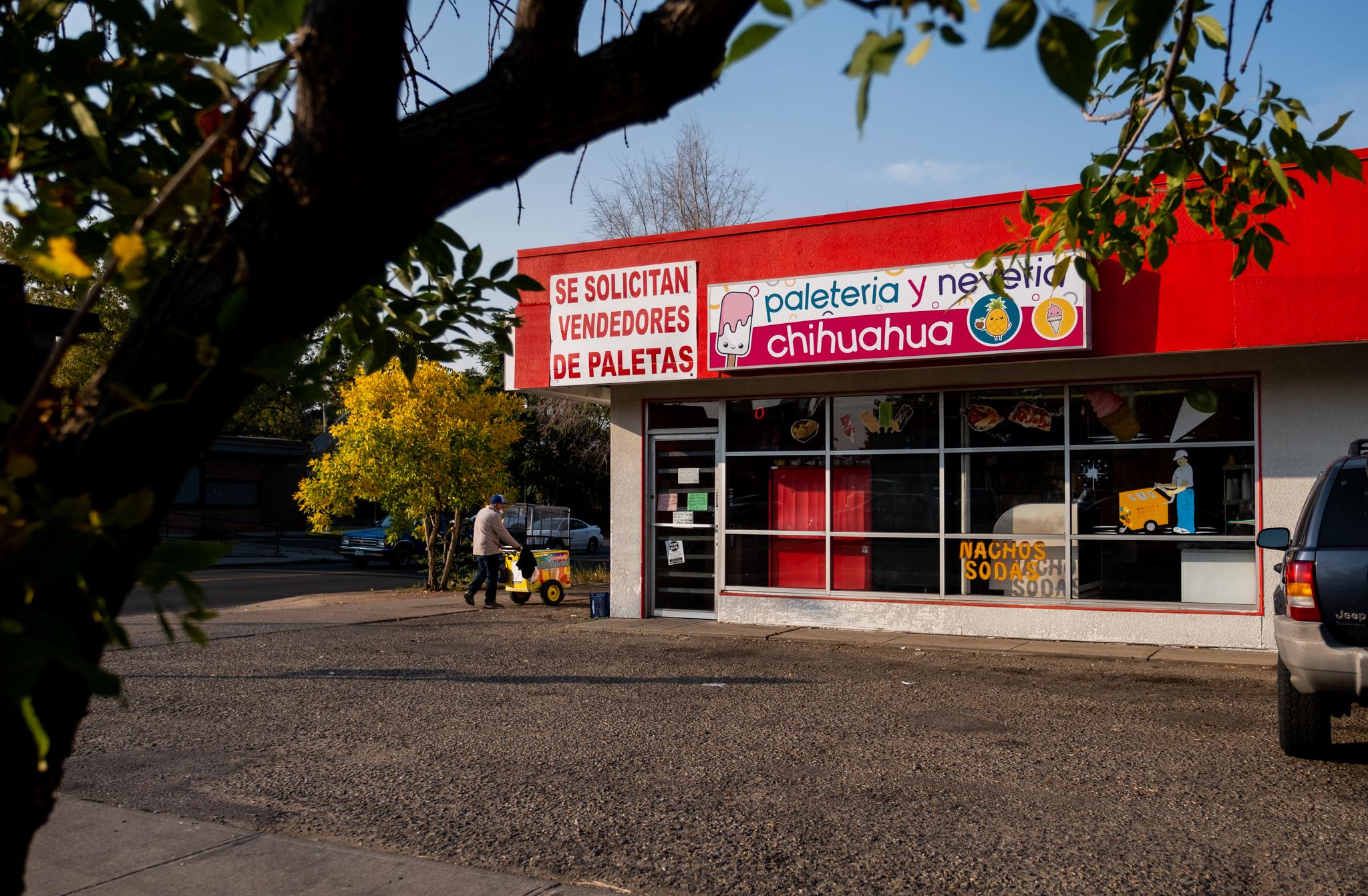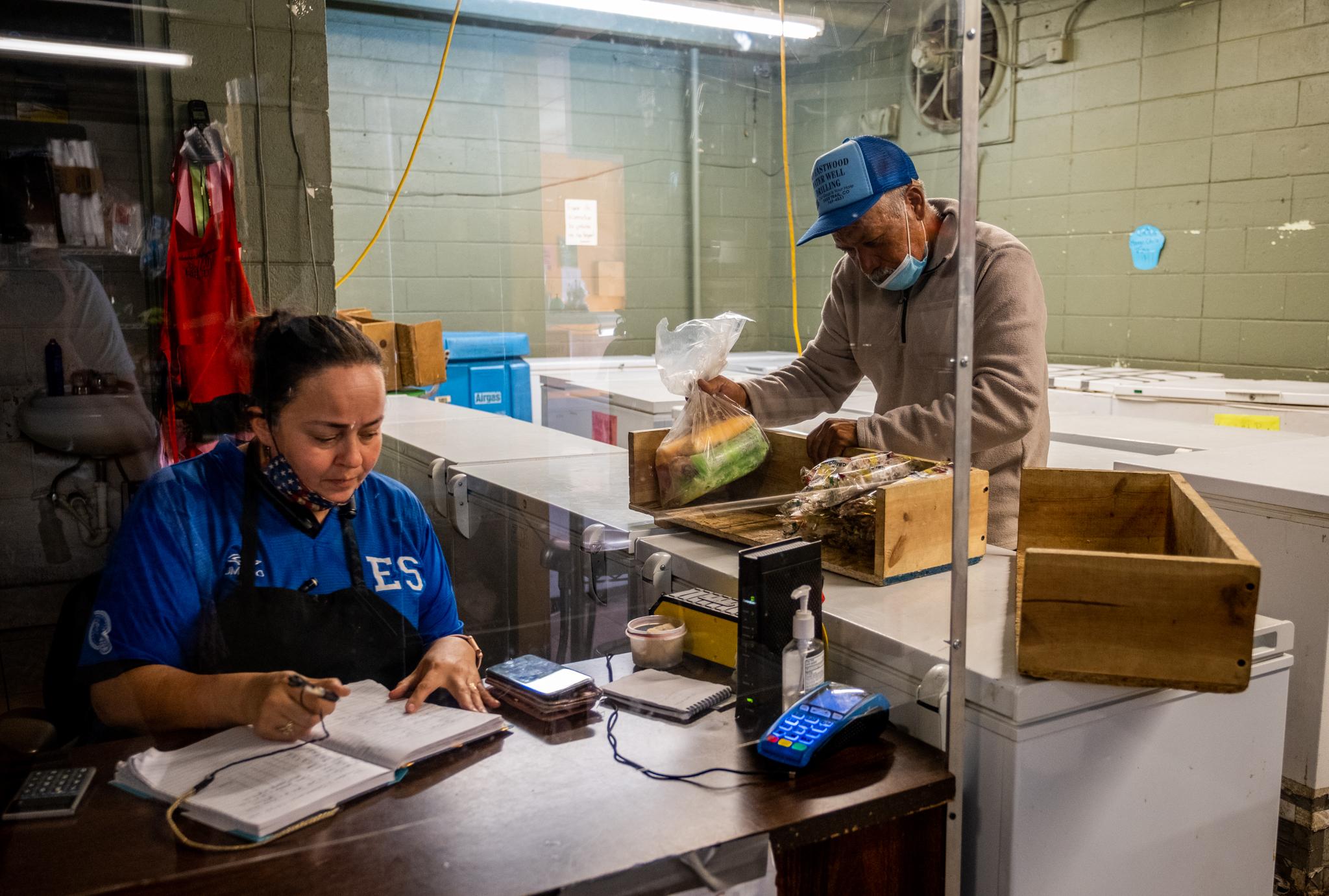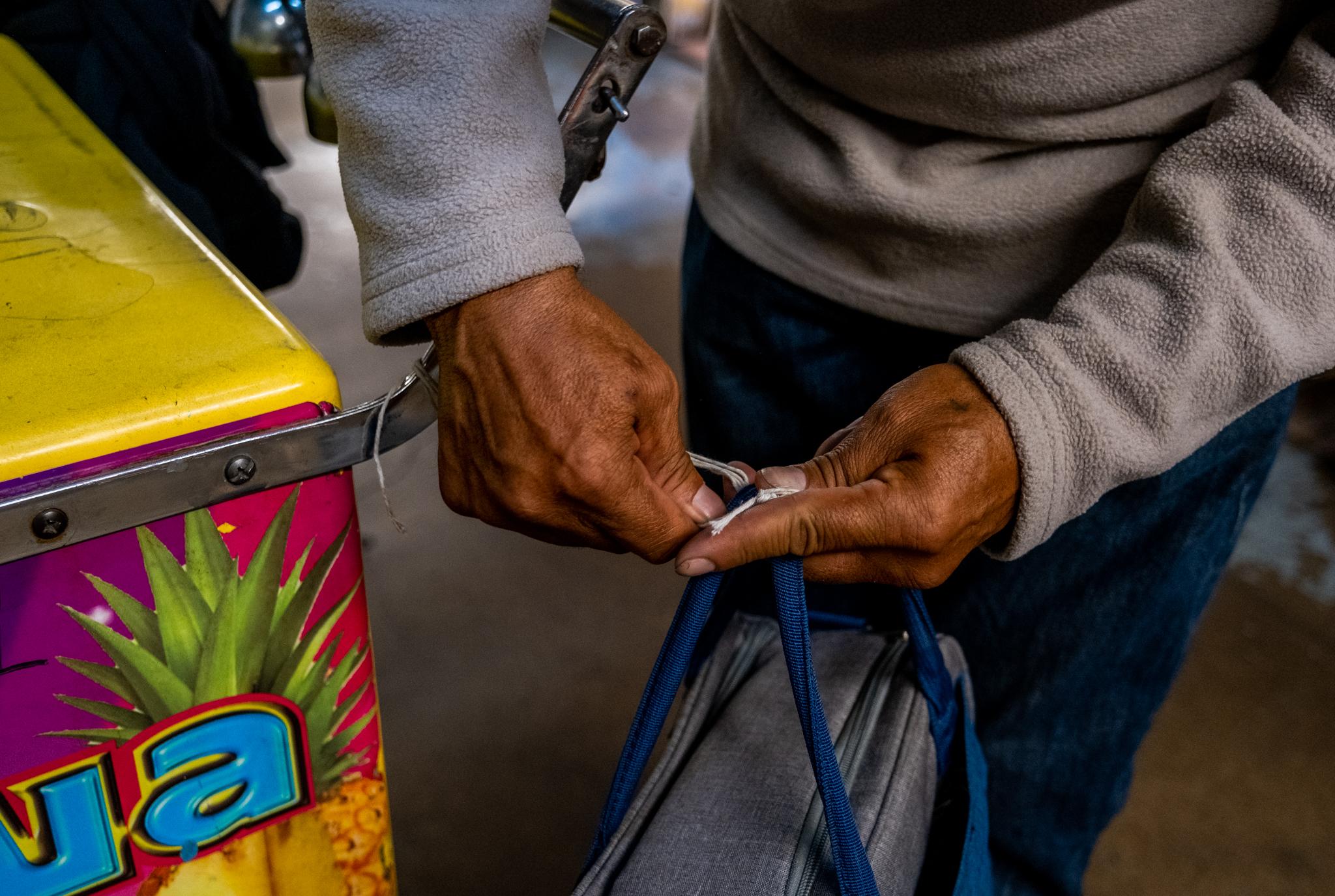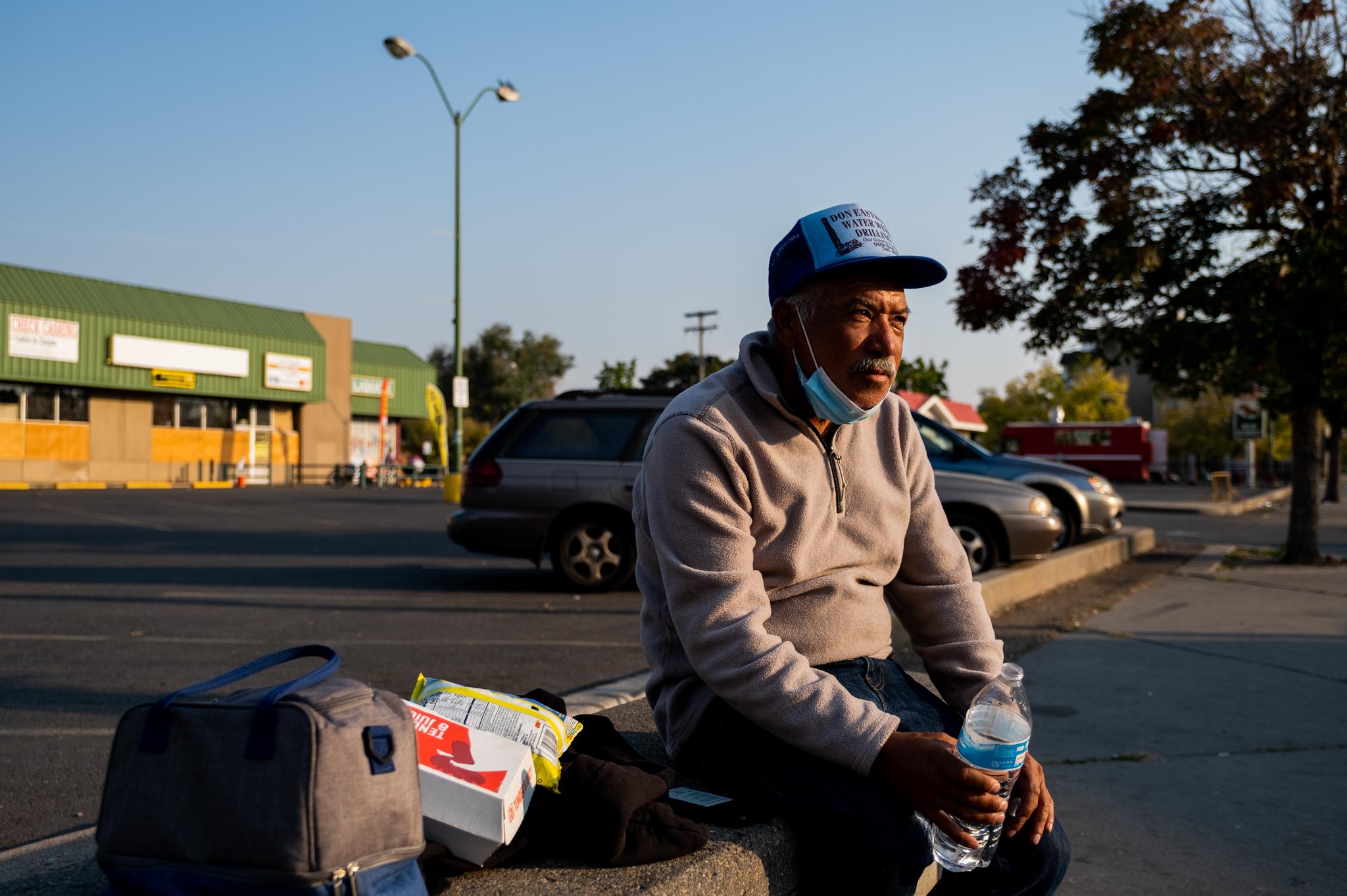Octavio Delgado hunched down to tie his gray lunch bag to the corner of his paletero cart, right next to the three little bells underneath the cart's handle. He used a thin white string to keep the bag in place, making sure it was nice and tight.
Are you sure that's going to work?, his supervisor, Marychuy Robles, asked in Spanish as she watched him put the nylon bag in place. He smiled, stepping back to see his setup.
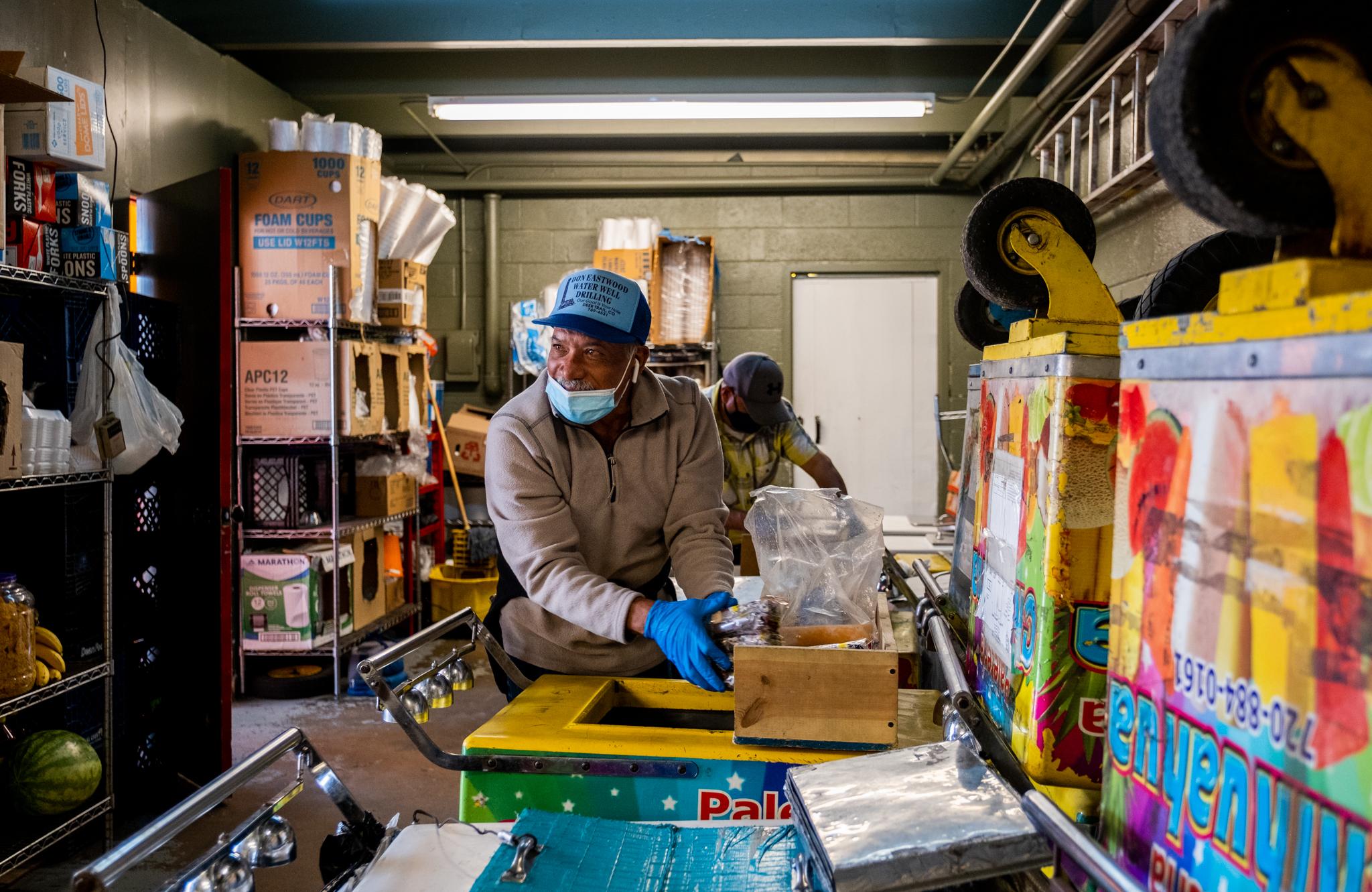
Delgado had just finished packing his cart with an assortment of helados, including bright popsicles and ice cream cups, inside Paleteria Chihuahua at the corner of Bruce Randolph Avenue and Downing Street in the Cole neighborhood.
He and other paleteros were getting ready to head out for the day. Wearing face masks, they took turns packing their carts inside the shop's cavernous backroom, where paletero carts were stacked against a wall and several large fridges that stored paletas. As they packed their carts, Robles marked down how much ice cream each paletero took.
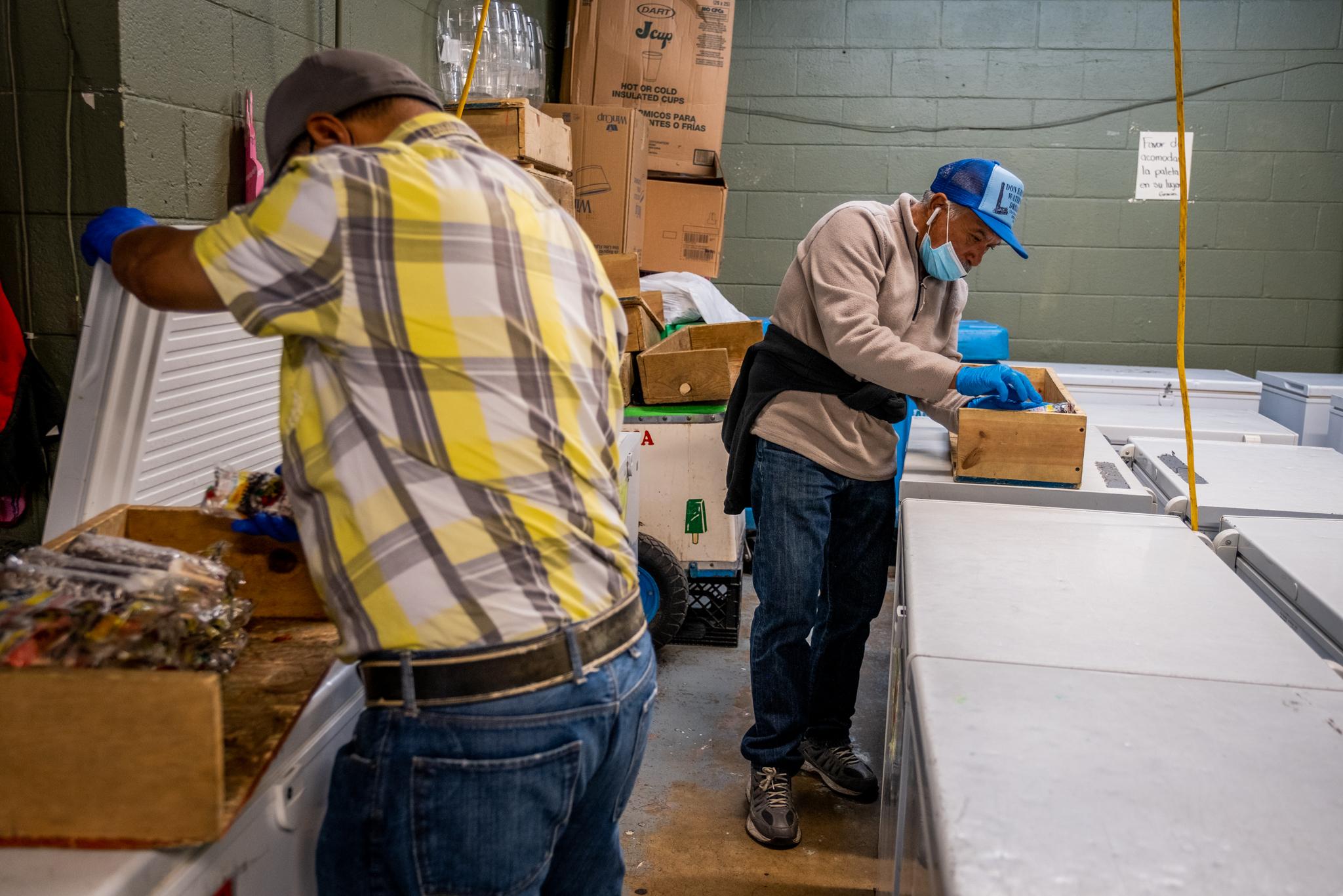
As he pushed the cart outside, Delgado started ringing his bells. If you grew up in a certain kind of neighborhood, you know exactly what those bells sound like. They produce a distinct, bright ring that somehow echoes on the streets the same way it does in the backroom at Paleteria Chihuahua.
Delgado, who turned 58 last month, is new at this. He's been working as a paletero for about three months after a friend hooked him up with the job. He speaks both English and Spanish, sometimes switching between the two. He's been living in homeless shelters since May and currently calls the Denver Coliseum home. He said he hasn't had a steady living situation since he lived in Aurora about five years ago.
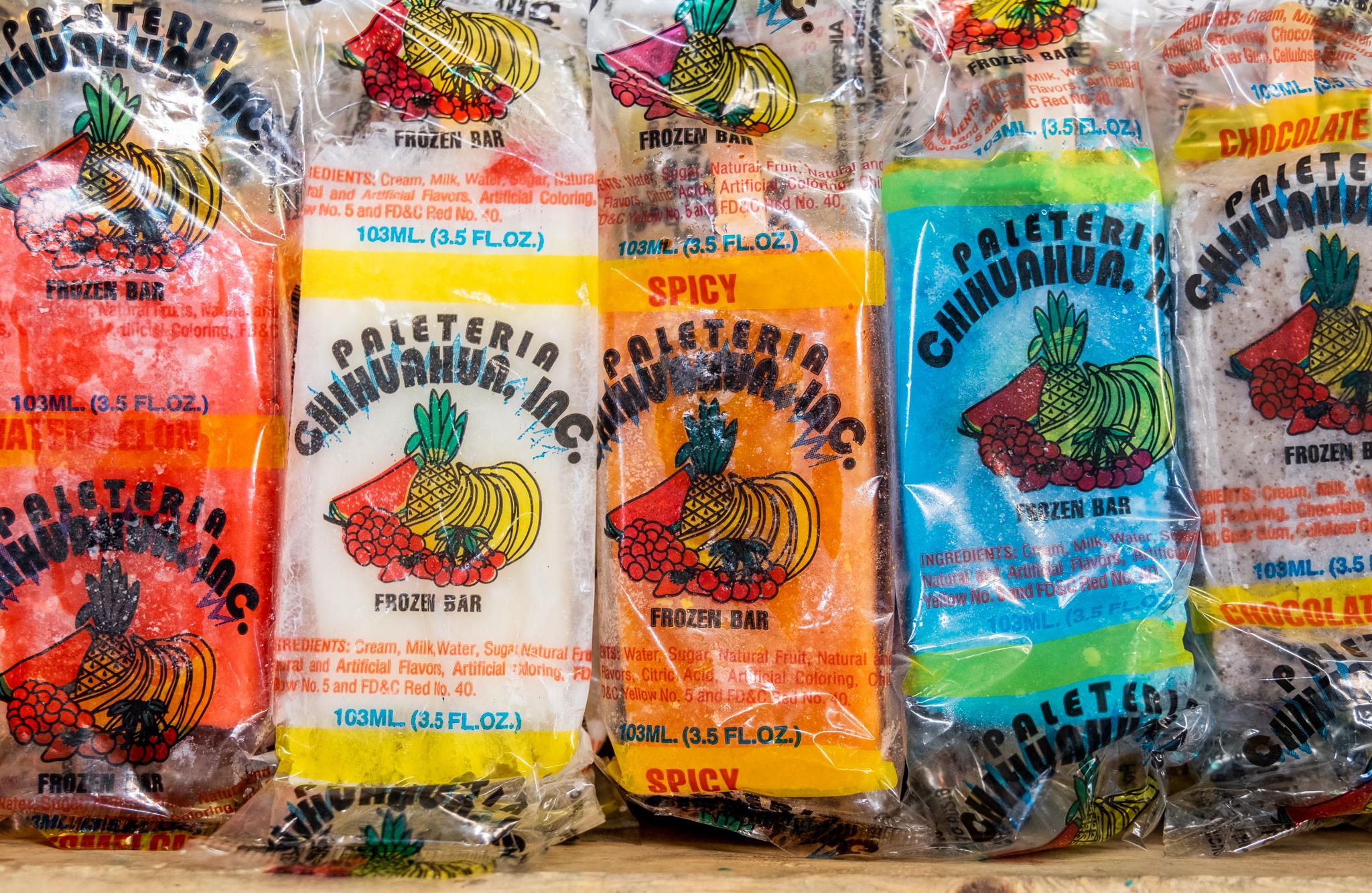
The paletero gig is temporary but an integral part of his life's goal. He plans to raise money to move to Illinois, where a former boss has promised him a job working with show horses if he can find his way back.
"She told me, 'You know what, you have you job here still if you want to come, and I'll pay for half and you pay for half for the trip,'" Delgado said in Spanish. "That's what I'm doing now right now: pulling money together."
Delgado, who's originally from Mexico, has traveled across the country to end up where he is today.
He came to Colorado in the early 1980s, first moving to Commerce City to work at a flower shop with his brother. He got paid about $1 an hour and usually worked 12-hour days. He went back to Mexico before returning to Colorado for a few years. Then he moved to California to work as a horse groomer at a racetrack in the Bay Area. He made decent money, much more than what he made in Colorado, but it was grueling work that began early in the morning.

Delgado worked there from the mid-'80s to the late-'90s, eventually taking a job as a janitor that turned into an assistant floor manager position at a movie theater in Redwood City, near Palo Alto. He was fired after he said he was falsely accused of stealing money while he tried to refund cash to a customer.
He struggled to find another job. Then his father, who lived in Illinois, found himself in some legal troubles. Delgado agreed to move there to help his family, taking a two-day bus trip to the Midwest. He got a job working with show horses in Geneseo, Illinois, from the early 2000s until 2008, when he returned to Colorado. That job in Illinois is the one he's trying to get back.
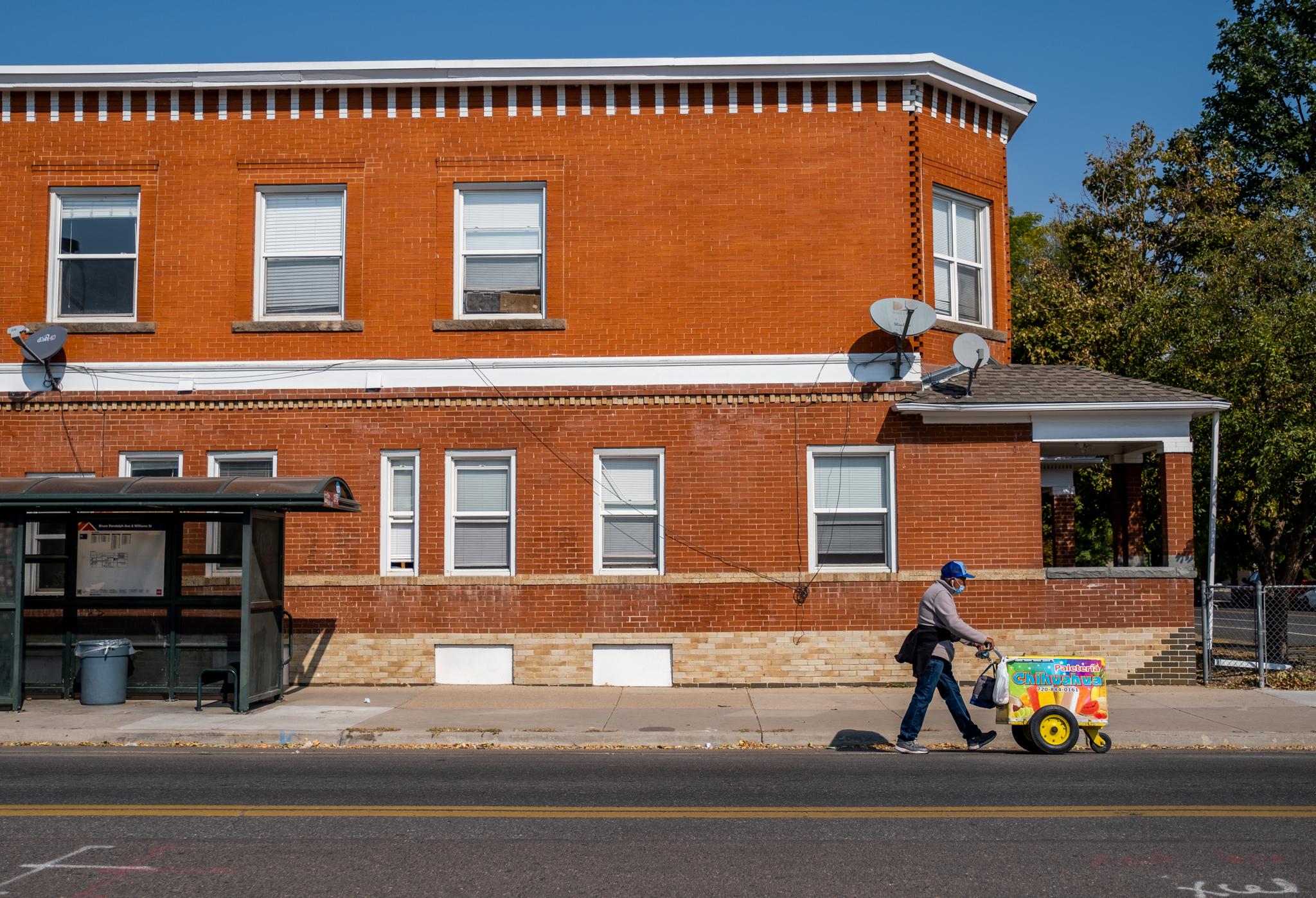
He returned to Colorado to try and reconnect with his two daughters, whom Delgado said he pretty much abandoned when they were born, in the early 1980s. He had a poor relationship with their mother, who he said called the police on him when he tried to see his daughters. He ended up arrested and jailed during one of those visits, only to learn afterward that she had a restraining order against him.
"All that time, since they were about three, four years old, I left and never talked to them," he said in Spanish. "I didn't know anything about them, nothing. I didn't even know if they still lived here. I didn't even know their phone numbers. I didn't know their addresses, nothing."
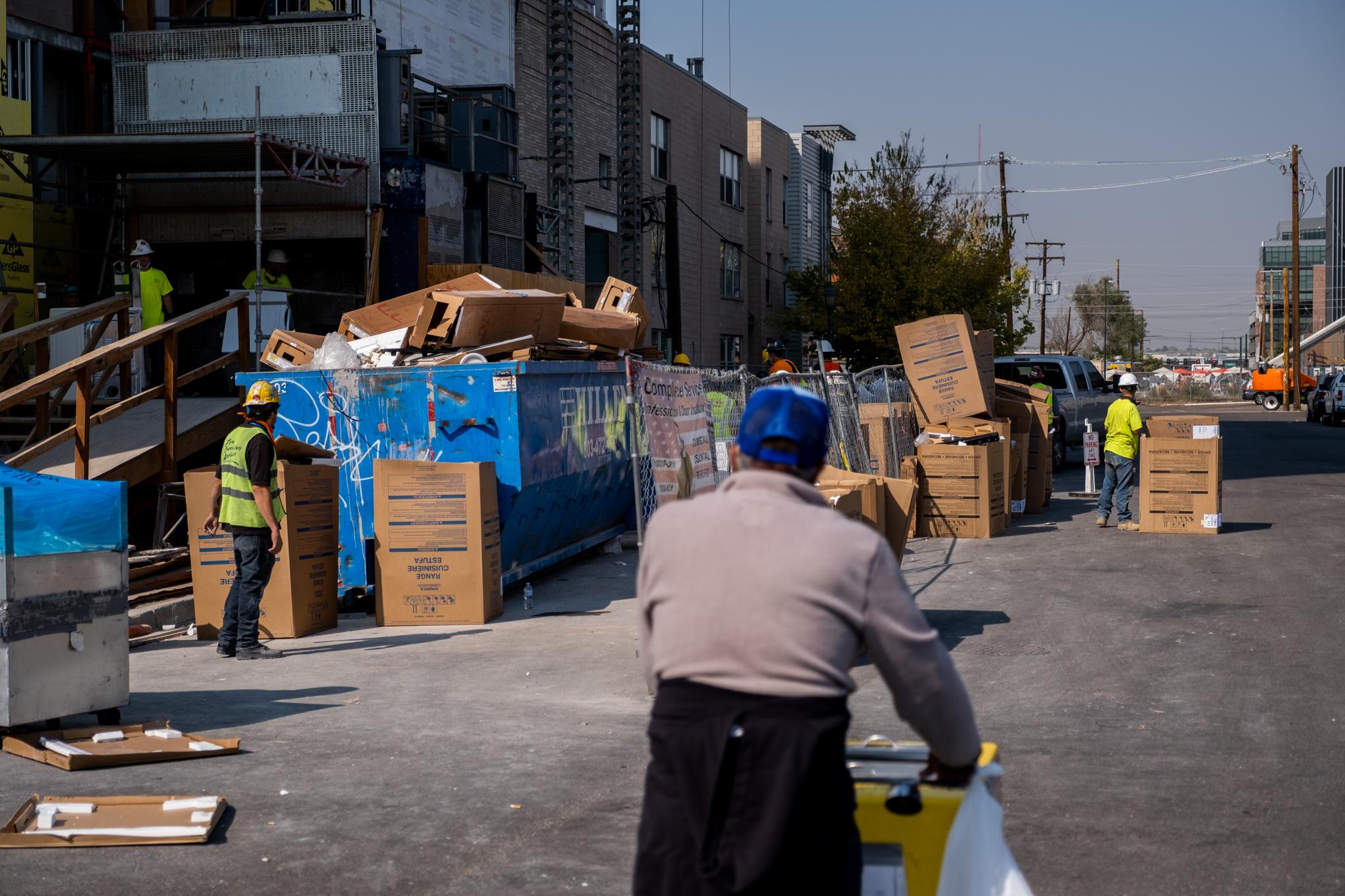
After returning to Colorado, he worked at Del Monte in Aurora, making guacamole. He eventually got his own apartment (he lived with one of his daughters, but they had a falling out). Shortly afterward, around 2014 or 2015 -- he doesn't remember exactly when -- he was struck by a car on his way to a bus stop after work. That's when he said everything fell apart. He spent about two months in the hospital and lost his job and his apartment. When he left the hospital he crashed at his brother's apartment, near Federal, but could only stay a few days because guests weren't allowed. He ended up living on the streets, thinking he could make it work by sleeping on benches. He met other people experiencing homelessness who showed him how to get services and things like food and clothing.
Then this year, a friend told about being a paletero.
Delgado can make about $130 to $140 a day, after he gives half of what he makes to the paleteria where he gets his elados. What really helps him make money are people who give him $20 for a $2 paleta and let him to keep the change. And he's gotten some pretty great tips since he started.
On his very first day, he said he made nearly $400 after he was stopped at a Wendy's on Colfax by a man who gave him $40 and got a bunch of restaurant staff to buy from him. It was about 1 p.m., and the sun was beating down hard.
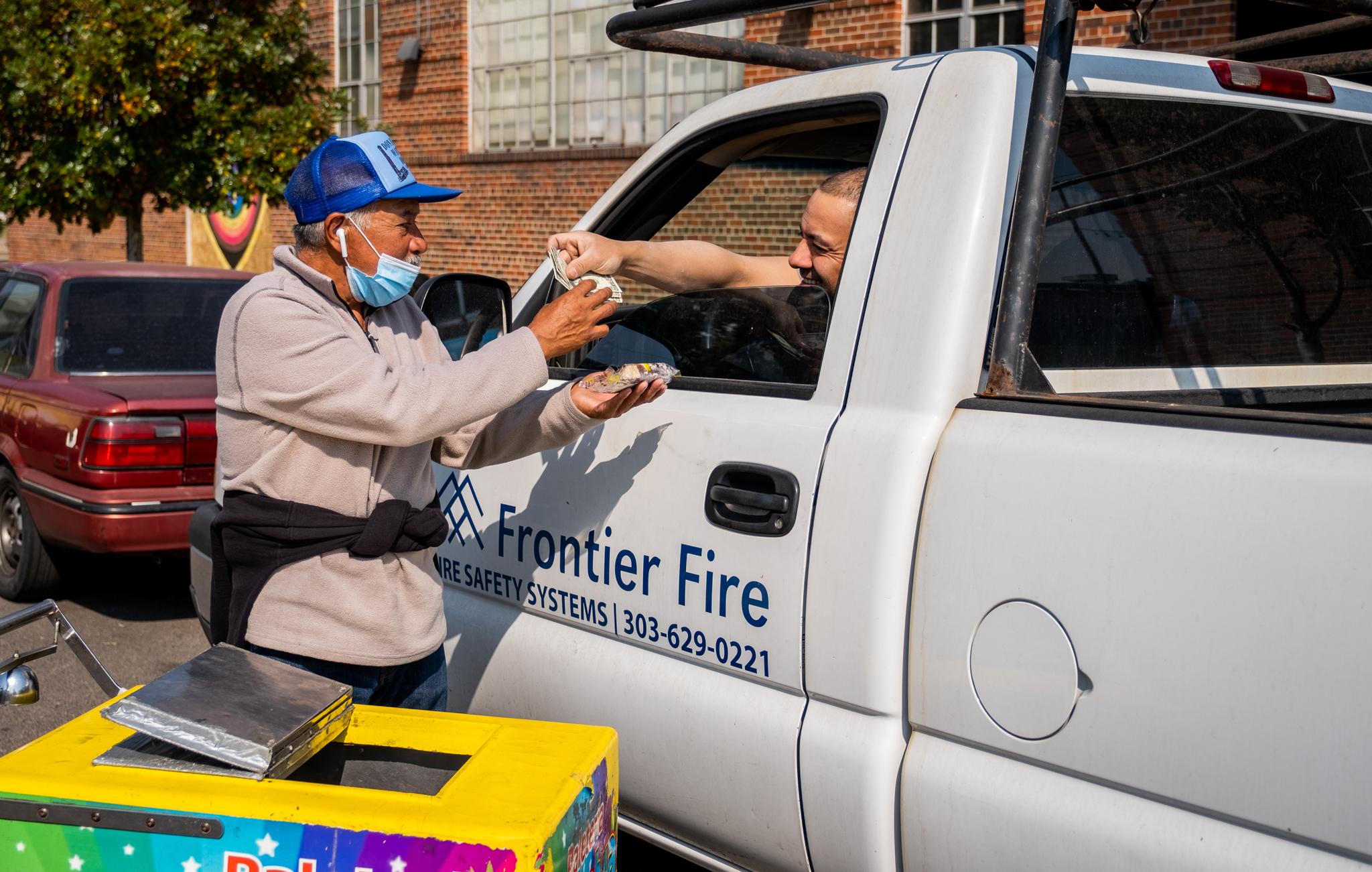
Then one of the staffers, whom Delgado figured was the manager, ended up paying for all the ice treats he had left, which came to about $300.
"'I don't want the ice cream, I just want to buy them so you can not be walking anymore,'" Delgado recalled the man saying. "That was the very first day that I started working for this. And I said, 'Wow, I'm going to keep doing this.'"

There have been dark moments. He's been robbed, and he said he was assaulted by a person who tried to buy a paleta but started punching him after refusing to pay for the treat. Robles said a man attacked in Green Valley Ranch in June, Antonio Ramirez-Chavez, was a colleague.
On a recent Thursday in October, he walked more than 10 miles around Denver on his route.
During the morning, he pushed his cart through Five Points, walking along the RiNo Art District, before heading downtown on 17th Street. He avoided the 16th Street Mall -- he's been warned by security there that it's off limits -- before taking a lunch break. He continued along Colorado Boulevard and Colfax later in the afternoon.
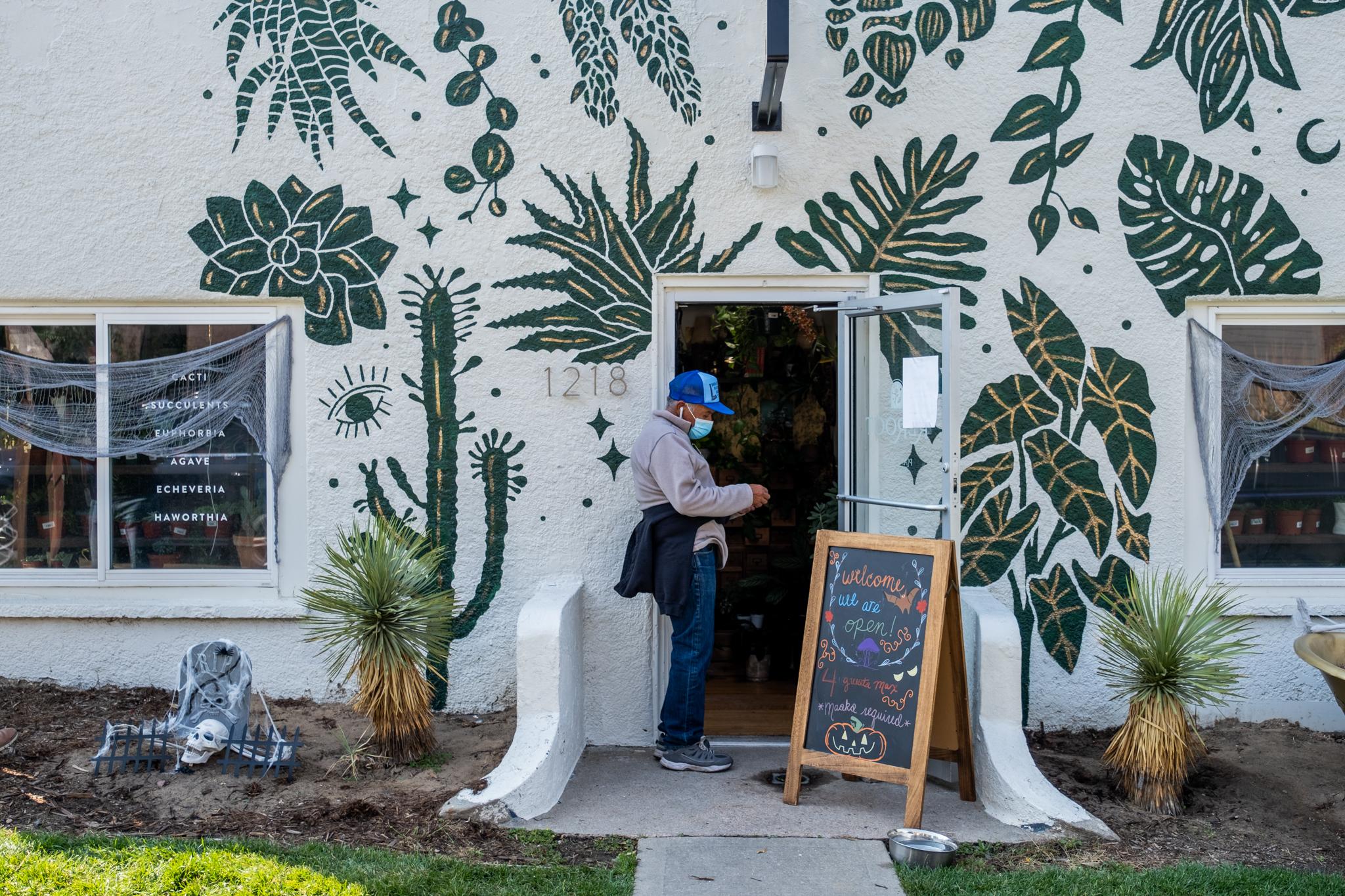
The first hour, starting around 11 a.m., wasn't very fruitful. But Robles acknowledged October isn't the height of the paletero season, which peaks in the summer when people want to find an instant escape from the heat. Delgado made only a handful of sales as he walked near construction sites in RiNo. He tries to walk near these places to entice men in hard hats covered in dust and others trying to find some shade.
Robles said paleteros are like independent contractors. They get half of what they sell, and the paleteria lets them use the carts, which she said can fit about 300 normal-sized paletas. The city's licensing department said the shop currently has nine mobile food licenses for each cart. Most of the paleteros find out about the job like Delgado did, through word of mouth. Robles said she has hired paleteros from other ethnic backgrounds including Black, Indian and white, but she said they're usually Mexican.

She usually works with 20 during the summer, then just five during October, which is usually the last month of paletero season.
"When they first start, they will walk around any street," Robles said in Spanish. "But once they have more experience, they know where to go and what hours work best more or less, like the lunch hour for construction sites and parks with a lot of people there and where there are parties, where there are fiestas."
Delgado wore a mask while he walked around the city. He was pushing his cart down Larimer Street when Mike Krause, a traffic control worker, waved him over from his pickup truck. Krause is a self-proclaimed ice cream connoisseur who often buys some for his coworker (he had a box of ice cream popsicles to prove it). This time, he got a treat for himself.
"Whenever I see one of these guys, I stop them," Krause said.
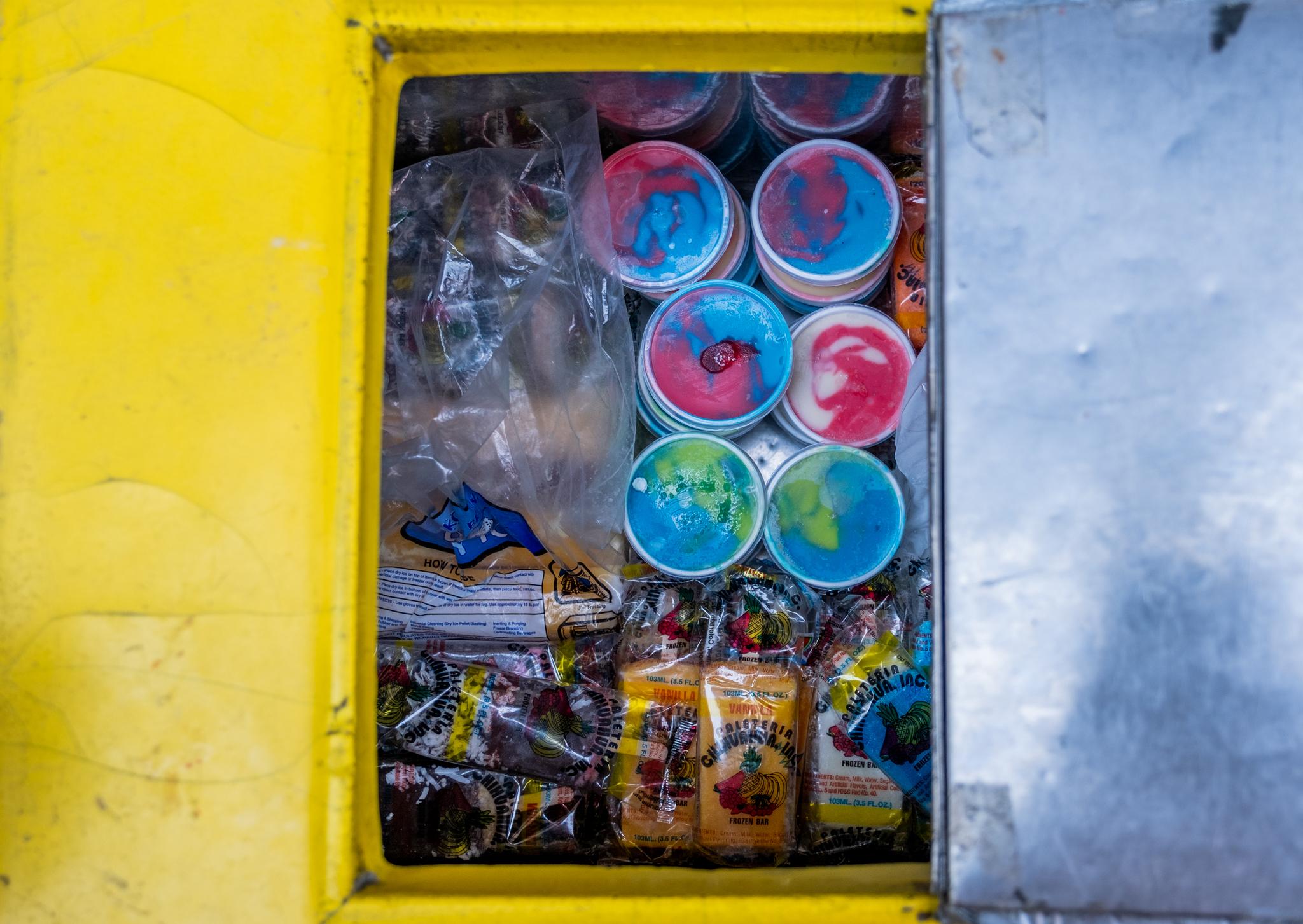
Delgado usually works until about 5 p.m. Monday to Friday.
That Thursday, he found a shaded bus bench on 17th Street. He sat down to eat some pizza. At that point, he had been walking for nearly two hours.
His legs had to hurt, right? They do, he said. As he finished, he summed up his life at the moment, speaking in slang that, loosely translated, means, "Well, what can you do, that's how this job goes."
"Pero ni modo, eda? Asi es este jale," he said, smiling. He sat on the bench and finished his slice, preparing for another route in Denver.
Photojournalist Eli Imadali contributed to the reporting in this article.

